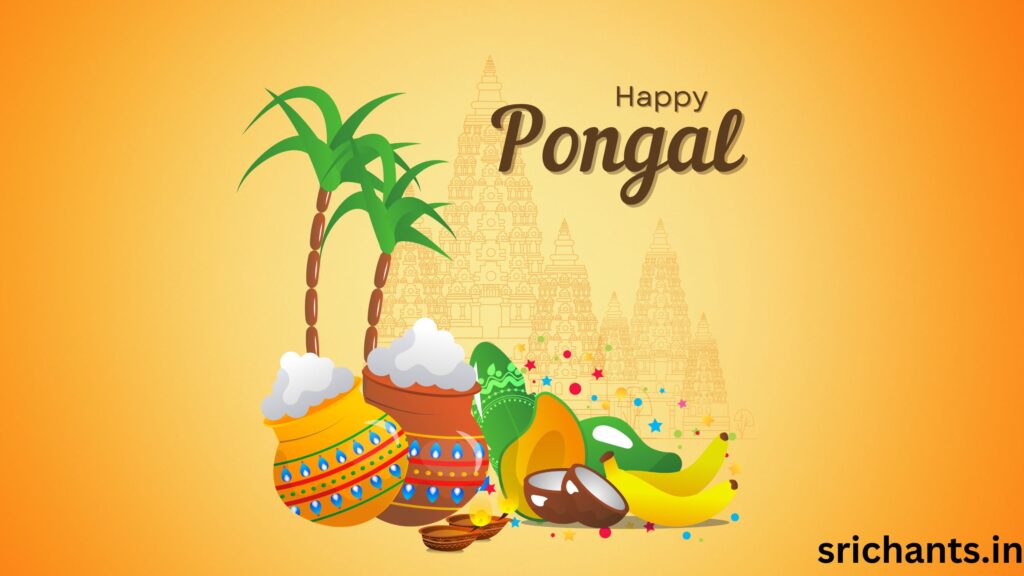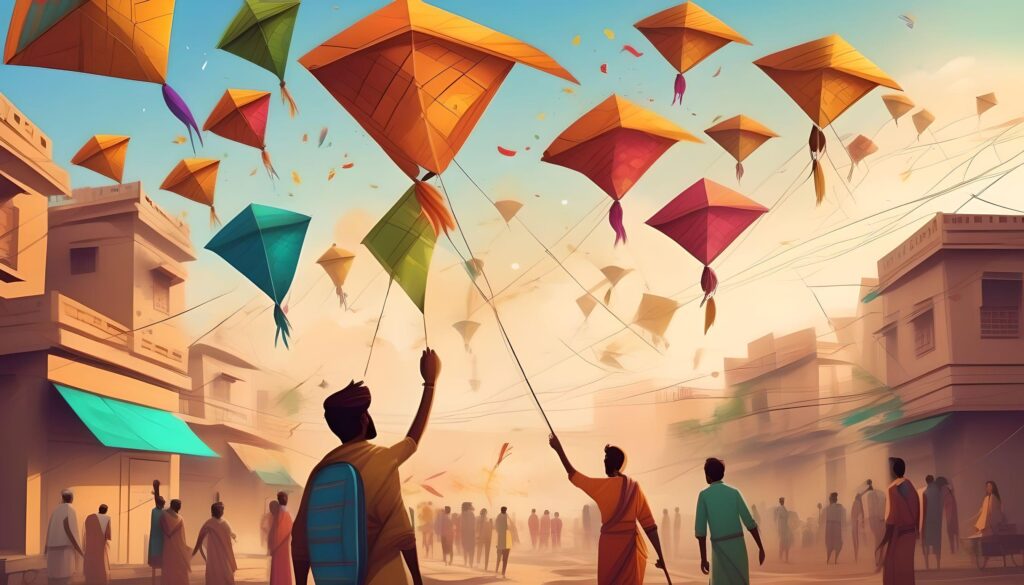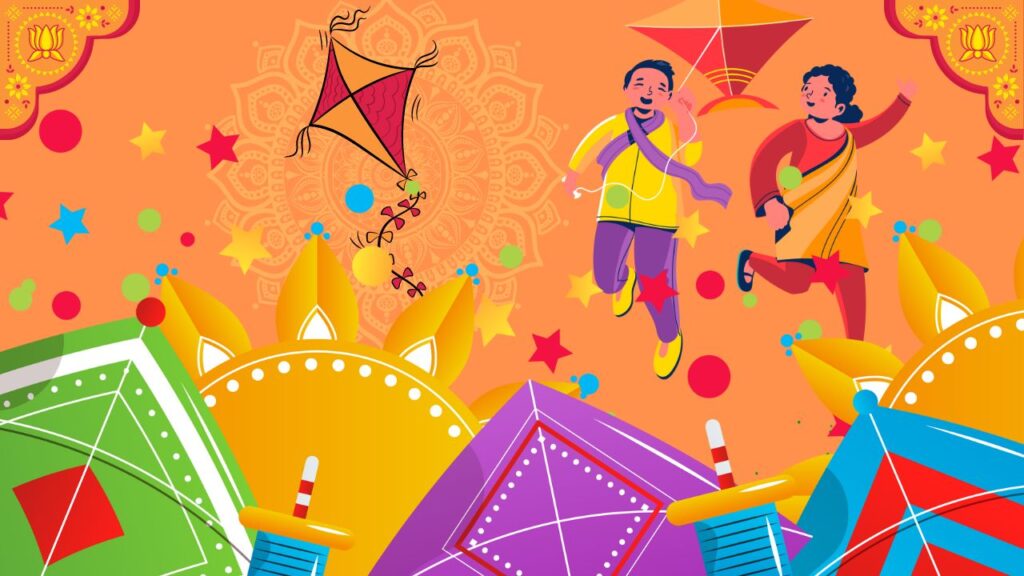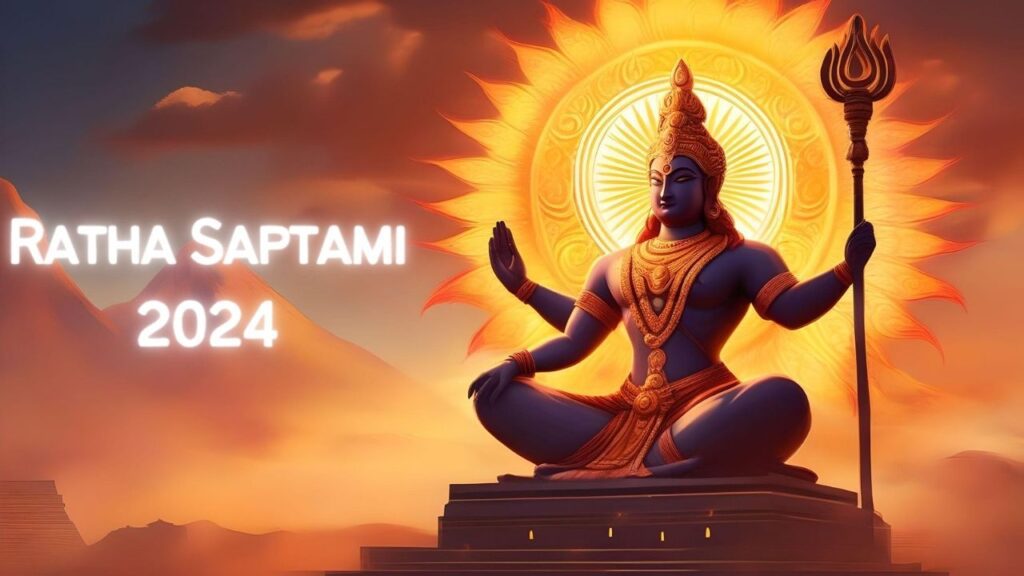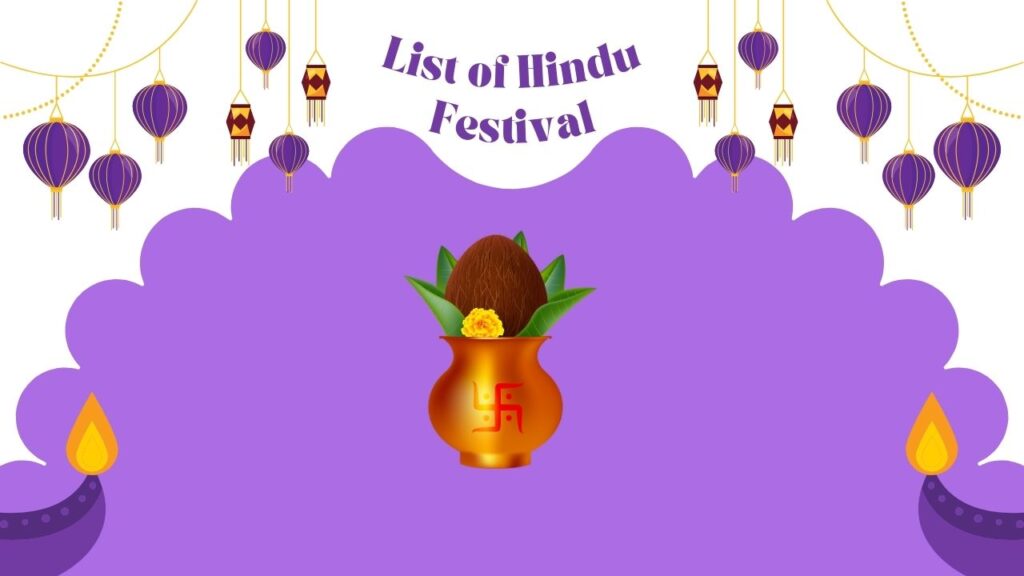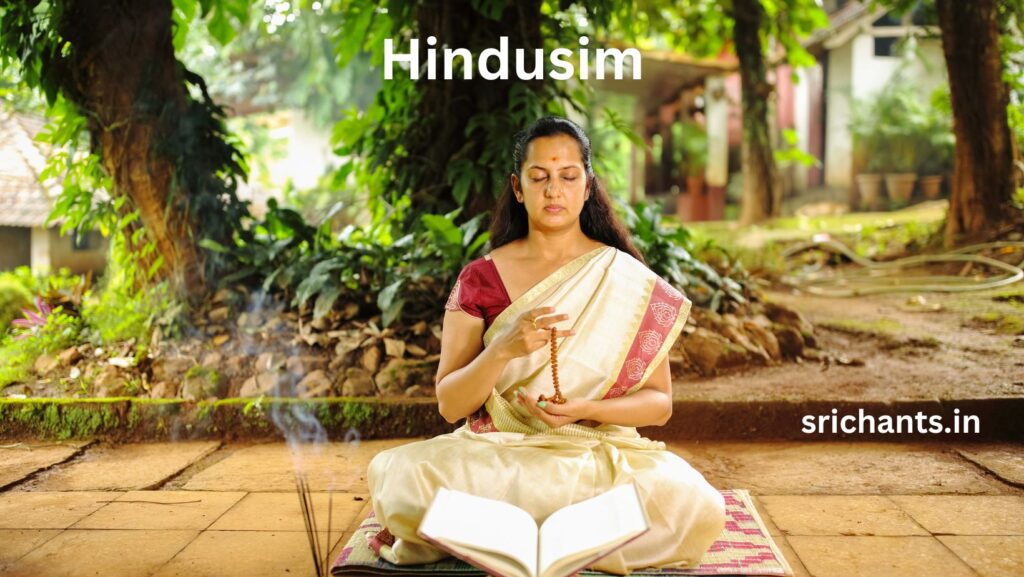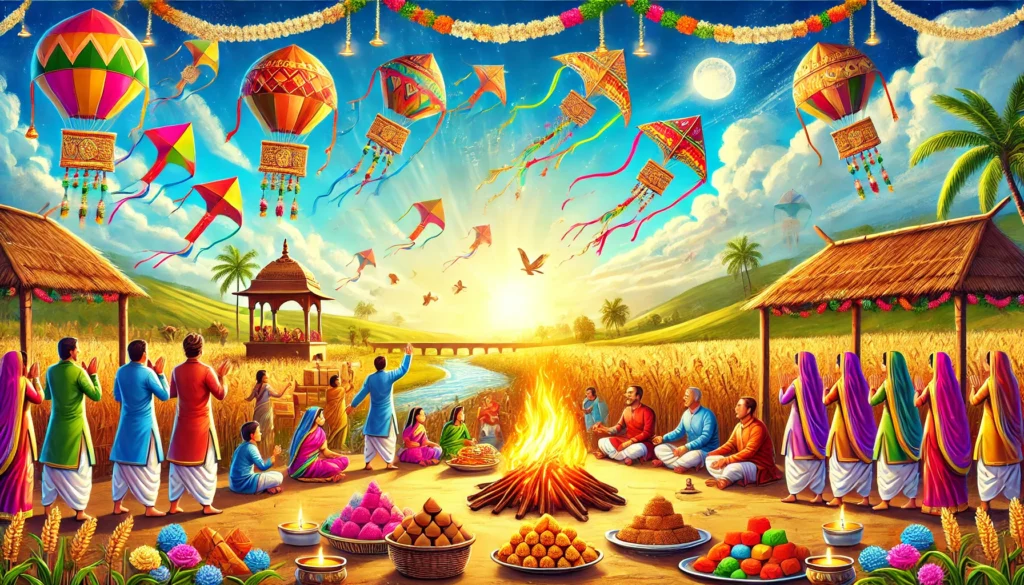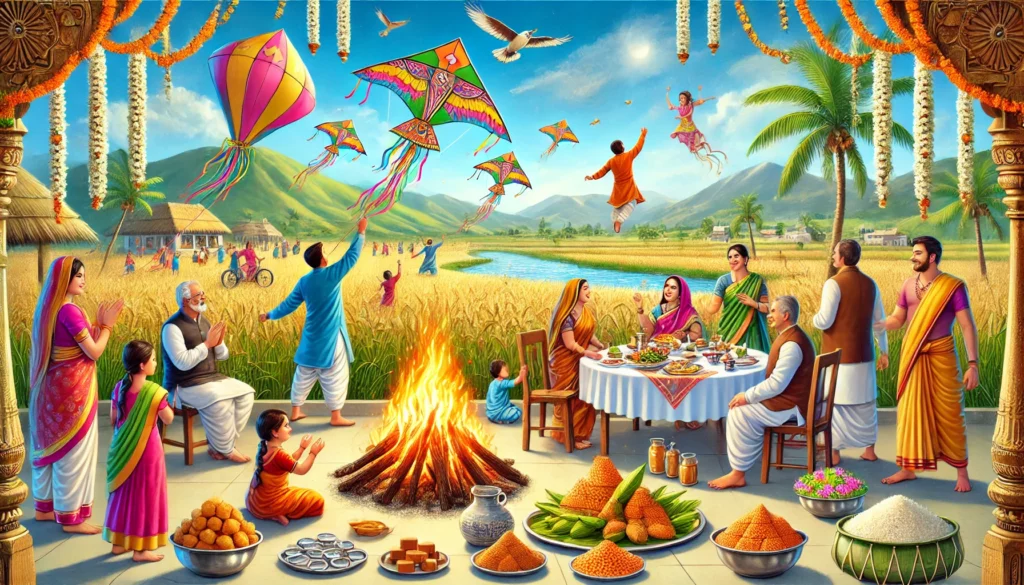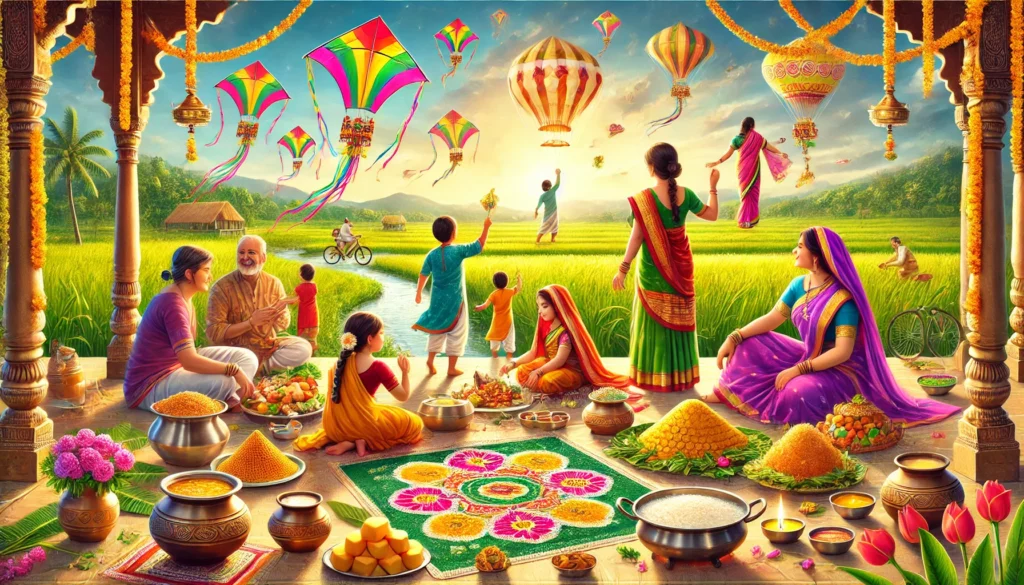Pongal: A Celebration of Harvest, Gratitude, and Culture
Introduction
The southern Indian states of Tamil Nadu and Kerala host the most enthusiastic and beloved Pongal celebrations in all of India. The beginning of the Tamil month “Thai” is celebrated with this four-day harvest festival, which is a joyful tribute to the Sun God, vegetation, and farming. Pongal is a symbol of thankfulness, unity, and wealth; it has its origins in old customs.
Originating from the Tamil term “pongu,” which means “to boil over,” the holiday represents an abundance of favors and plenty. Pongal is a joyful and reflective time because of the rituals, cultural expressions, and community activities that make up the celebrations.
Historical and Cultural Significance
Pongal is a holiday that has been celebrated for nearly 2,000 years, since the Sangam Age, when it was a way to celebrate a good harvest and give thanks to the Sun God. It has strong ties to the agricultural seasons and is hence a classic example of an agrarian festival. The event is an essential part of the life of farmers and rural communities, celebrating rice, sugarcane, and turmeric. It represents the agrarian roots of Tamil culture.
Pongal is steeped in mythology, which includes stories of the Sun God bestowing his blessings on mankind and Lord Krishna raising the Govardhan Mountain. To emphasize the significance of the occasion in Indian tradition, these tales combine spirituality with practical thankfulness.
The Four Days of Pongal
- Bhogi Pongal
Bhogi, the first day of the new year, represents letting go of the old and embracing the new. For the purpose of cleansing and rebirth, families gather around a bonfire to burn old belongings and clean their dwellings. To ensure a bountiful harvest in the future, farmers also worship Lord Indra, the deity of rain. Kolams (rice-flour designs), colorful decorations, and a spirit of rebirth bring villages to life. - Thai Pongal
Surya, the Sun God, is worshipped on the primary day, Thai Pongal. Pongal is a traditional Indian rice meal that is cooked in an earthen pot with jaggery, milk, and ghee. It is a family tradition. Screams of “Pongal O Pongal,” signifying plenty, are let forth the second the pot of rice comes to a boil. Families celebrate with shared feasts and ceremonies, and they offer sugarcane and turmeric to the Sun. - Mattu Pongal
The third day, Mattu Pongal, is devoted to celebrating the role of cattle in agriculture. There is ritual washing, garlands adornment, and devotion of bulls and cows. Traditional bull-taming, or Jallikattu, takes place in rural Tamil Nadu on this day as well. The celebrations bring attention to the interdependent nature of humans and animals in rural settings. - Kaanum Pongal
On the last day, Kaanum Pongal, the importance of family and social ties is highlighted. Meeting together for meals and visiting with one another is a great way for families to bond. Traditional practices, such as sharing food with birds and animals, promote harmony with the natural world, while cultural performances and games bring people together in celebration.

Unique Features of Pongal
- Culinary Delights: Sakkarai Pongal (sweet Pongal) is the festival’s highlight, made with freshly harvested ingredients.
- Decorations: Homes are adorned with intricate kolams and turmeric plant decorations.
- Nature and Spirituality: Pongal fosters a connection with nature through rituals thanking the Sun God, the rain, and animals.
The Broader Impacts of Pongal
Originally celebrated as an agricultural festival, Pongal has evolved into a joyous family and community event. It encourages eco-friendly lifestyle choices by cultivating appreciation and reverence for the natural world. The festive atmosphere of the festival brings people together from many backgrounds, helping to dissolve cultural barriers and foster unity.

Conclusion
Pongal symbolises appreciation, abundance, and unity; it is more than just a celebration; it is an enduring custom. Reminding us of our interconnectedness with the natural world, it is a celebration of nature’s wealth. The celebration brings a sense of renewal to our roots, happiness, and optimism as the delicious scent of Pongal foods wafts through the air.
May this Pongal bring abundant blessings and joy to everyone celebrating! Pongal O Pongal!
